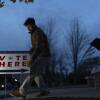At a recent event on anti-Asian violence, sponsored by the Lawyers Committee for Civil Rights, the conversation turned contentious. While the panelists all agreed that anti-Asian hate is rising and needs to be addressed, they quarreled over whether more policing and more prosecution should be part of the solution. This division even led to opposition to the recent federal bill to combat anti-Asian hate crimes (which President Biden signed last Thursday) because “[h]ate crime classifications are really about justifying and reforming a system that we are trying to replace.” Clearly, the issue of policing is divisive and is driving a wedge within communities of color.
With the persistent problem of police misconduct and shooting of Black men, many communities of color have lost faith in the police and its ability to protect those communities. Understandably so. The risk that innocent Black men will lose their lives at the hands of police officers who are poorly trained at best, and afflicted with racial animus at worst, is all too real. Exhibit A: The murder of George Floyd in Minneapolis last year.
But is the best solution to eliminate law enforcement? Perhaps the path forward lies not in less law enforcement, but better law enforcement. By spending effort in disagreeing about the value of policing, minority communities are missing the valuable opportunity to talk about how to reform policing.
To rail against more policing as a matter of principle is to leave some of our most vulnerable populations at risk of harm on the streets and encourage self-help. Firearm merchants report a spike in Asian Americans buying guns to protect themselves amid a climb in anti-Asian hate crimes. Gun sales are up among Asian Americans when the message is that self-protection is the only way to protect yourself. Other Asian Americans, meanwhile, carry pepper sprays and mace.
But we should not have to tell elderly parents that they must carry around a pepper spray before they go out. Our most vulnerable populations should not have to choose between resorting to self-help or not go out at all. The message should not be that vulnerable populations are left to protect themselves.
Rather, the solution should consist of the kind of police reform —community collaborative policing—that exists in some of our communities, where a police officer knows the neighborhood and its residents, where the police are trained in the needs and nuances of the communities they work in, and where the police work with other agencies trained to address some of the complex issues such as mental health that frequently cross their paths. None of the police officers who work in Brooklyn Center, Minnesota, the site of the recent killing of Daunte Wright, live in that community. And even if the police have local ties to a neighborhood, they may be ill-equipped to grapple with the problems that surface within them. Roughly 25% of police killings involve someone who is mentally ill. Police officers are not generally trained to diagnose or treat people who are mentally ill, but they’re the ones who are called when people are in mental health distress and may pose a danger to themselves and others.
The City of Cambridge, Massachusetts for example, has developed the Safety Net Collaborative, which is a multiagency integrated model of preventive services for at-risk youths involving mental health providers, police officers, schools and the city’s department of youth and family. The City of Chicago similarly has devised a Crisis Intervention Team, which teaches officers and 911 operators to respond thoughtfully to those experiencing mental health issues and redirect the person in distress to social services. Effective partnerships between law enforcement and community stakeholders are essential to public safety, and it is important that government agencies, community groups, nonprofits, businesses, and private citizens all embrace public safety as a shared responsibility.
The solution to the epidemic of police violence is not necessarily more or less policing, but better policing.
Margaret Y.K.Woo is Professor of Law at Northeastern University School of Law, and sits on the Board of Directors of the Asian American Legal Defense and Education Fund. Daniel S. Medwed is University Distinguished Professor Law and Criminal Justice, Northeastern University, and Legal Analyst for GBH News.




